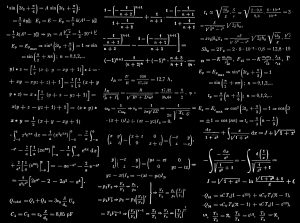Understanding the Science Behind Abacus Learning

Are you a parent concerned searching for effective ways to help your child improve their mathematical abilities? Look no further! In this article, we will dive into the fascinating science behind abacus learning and how it can unlock your child’s mathematical potential. With its unique approach to mathematics, abacus education enhances cognitive skills, improves memory, concentration, and overall cognitive development. Let’s embark on this journey of discovery and see why abacus learning is a valuable tool for your child.
What is an Abacus?
The abacus is an ancient counting tool that has been used for centuries to perform calculations. It consists of a wooden frame with rods or wires and beads that can be moved along the rods. The position of the beads represents different place values, allowing users to perform addition, subtraction, multiplication, and division. The abacus is a visual representation of numbers and mathematical operations, making it a powerful tool for children to understand and solve complex mathematical problems.
The Science Behind Abacus Learning
-
Development of the Mental Abacus
One of the most significant outcomes of abacus training is the development of a “mental abacus.” As children manipulate the beads on the physical abacus, they internalize these actions and gradually transition to performing complex calculations mentally. This mental abacus becomes like muscle memory for the brain, enabling children to solve mathematical problems quickly and accurately without relying on physical tools. The development of a mental abacus enhances concentration, focus, and cognitive flexibility.
-
Engagement of Both Brain Hemispheres
Abacus learning engages both the left and right hemispheres of the brain. The left hemisphere, responsible for logical reasoning and computation, is stimulated when children perform calculations using the abacus. Simultaneously, the right hemisphere, which nurtures imagination and visualization, is engaged as children visualize the movement of beads on the abacus. This balanced engagement fosters a more holistic cognitive development, enhancing both analytical and creative thinking skills.
-
Enhanced Spatial Reasoning
Using the abacus helps children visualize mathematical concepts, improving their spatial reasoning abilities. By physically manipulating the beads on the abacus, children translate abstract numbers into tangible objects. This hands-on approach makes complex mathematical operations more intuitive and accessible, strengthening their understanding of spatial relationships and problem-solving skills.
-
Improved Memory Functions
Abacus training has been linked to enhanced long-term and short-term memory. Through systematic problem-solving using the abacus, children develop better retention strategies that apply across various subjects, not just mathematics. These improved memory functions lead to enhanced performance in areas such as language learning and problem-solving in different contexts.
-
Promotion of Critical Thinking and Independence
The structured approach of abacus education encourages critical thinking skills in children. They learn to break down complex problems into manageable steps, fostering analytical skills that are valuable in all areas of life. As children gain confidence in their abilities to solve mathematical problems using the abacus, they become more independent learners, eager to tackle new challenges with a problem-solving mindset.
Benefits of Abacus Learning
-
Enhances Mathematical Abilities
Abacus learning significantly improves children’s mathematical abilities by providing them with a strong foundation in mental calculation. Children who learn abacus develop strong mental math skills, enabling them to perform complex calculations quickly and accurately in their heads. This ability not only boosts their confidence in mathematics but also helps them excel in other subjects that require numerical reasoning.
-
Improves Concentration and Focus
Abacus learning requires children to concentrate and focus on the task at hand. As they manipulate the beads on the abacus and perform calculations, their attention span increases, leading to improved concentration. This enhanced ability to concentrate and focus is transferable to other areas of their lives, resulting in better academic performance overall.
-
Enhances Cognitive Skills
Abacus education goes beyond arithmetic and enhances cognitive skills in children. By engaging both hemispheres of the brain, abacus learning nurtures creativity, imagination, logical reasoning, and visualization abilities. These cognitive skills are valuable not only in mathematics but also in other subjects and real-life situations.
-
Boosts Confidence and Self-esteem
As children master the abacus and solve increasingly complex problems, their confidence and self-esteem grow. The sense of achievement they experience through abacus learning empowers them to take on new challenges with enthusiasm and self-assurance.
-
Prepares for Academic Success
The benefits of abacus learning extend beyond mathematics. The enhanced cognitive skills, improved memory, concentration, critical thinking, and problem-solving abilities acquired through abacus education prepare children for academic success across various subjects.
In conclusion, the science behind abacus learning reveals its effectiveness in enhancing cognitive skills beyond mere arithmetic. By developing a mental abacus, engaging both hemispheres of the brain, improving memory functions, promoting critical thinking, and fostering independence, abacus education prepares students for academic success while nurturing essential life skills. Abacus learning enhances children’s mathematical abilities, concentration, cognitive skills, confidence, and self-esteem. If you are a parent seeking to support your child’s mathematical growth, consider enrolling them in an abacus learning program. SIP Abacus India offers world-class skill development programs that utilize the abacus tool and visualization techniques to teach children mental math skills. Their structured curriculum and proven teaching methodology ensure that children gain a strong foundation in mathematics and overall development. Give your child the opportunity to unlock their mathematical potential through abacus learning.
Remember, understanding the science behind abacus learning is the first step towards supporting your child’s mathematical journey. Embrace this opportunity and witness your child’s growth as they become confident, independent problem solvers with a passion for mathematics.



